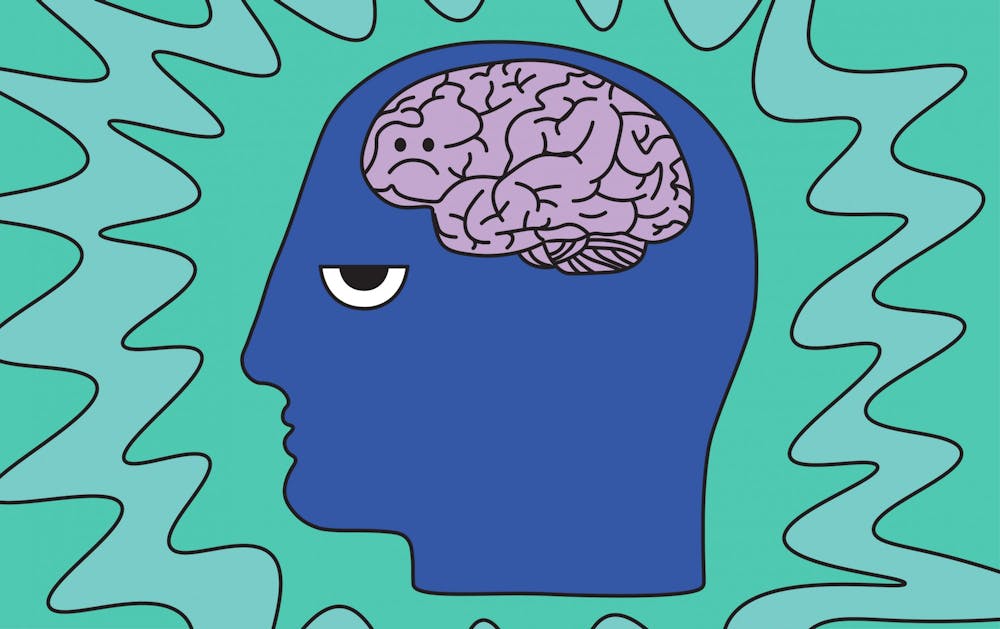For many, this is the first time we have all simultaneously faced a crisis of this magnitude. Jarring headlines and statistics are being thrown our way every second of the day, and many of us are stuck at home watching the news unfold.
For some, social distancing has caused a large strain on their mental health. Officials have said there is no solid timeline of when this will end, and it's been difficult to think positively about the future.
It began with a wave of cancellations. Starting with the pushbacks and rescheduling of highly anticipated events like festivals, concerts, sports events, and even communal occasions like church or brunch.
For the average person, social events are a way to relax and unwind. After a long week of work and school, students and others alike look forward to the weekend or scheduled events to detox from everyday stress.
Following stern advice from the Centers for Disease Control and Prevention came the term many of us are familiar with, social distancing. It was suggested by the CDC to avoid any non-essential encounters to limit the spread of COVID-19. And those limitations included friends and loved ones too.
In a 2004 study of 129 Toronto residents who were under quarantine during the 2003 SARS epidemic, 28.9% observed symptoms of post-traumatic stress disorder while 31.2% observed symptoms of depression.
According to the study, "Longer durations of quarantine were associated with an increased prevalence of PTSD symptoms."
For many who live alone, or perhaps returned home to isolate with their parents, isolation from friends and peers has been particularly challenging.
Marisa McKay, a senior studying social work, said she's been working to keep her spirits up in this hard time.
“I'm trying to get registered as a registered behavior technician, so I actually have been studying a lot for that exam," McKay said. "Apart from that, coloring and embroidering have been helpful in giving me something to do. I have been watching a lot of TV and sleeping a lot as well. I try to do little cleaning tasks around my apartment when I get really bored.”
The pressure to remain productive and focus on schoolwork has been a burden that many students have found more difficult than usual. As the days go on, it’s been hard for college students like Marisa who use social events as a resource to improve their mood.
“Not only does social interaction boost my mental health, but it also boosts my energy," McKay said. "FaceTime and texting can only provide so much. I am happier and healthier when I'm able to sit and laugh with friends."
Like many others, her day-to-day routine has been derailed and now she must find other outlets for joy to take the place of the lost social interaction time.
The main problem with social distancing and its correlation to mental health is an unknown timeline to when this will all be over. It’s been difficult to plan or count on much of anything which makes people feel weary and uncertain about the future.
This is an exceptionally rough period for people with pre-existing mental conditions who are now adjusting their once stable routine. For some students, the reliance on a strict schedule is what gives them purpose and drive, allowing them to focus on their tasks and schedule instead of their struggles.
It's OK to feel out of place during these trying times. COVID-19 has changed and impacted everyone and everything we know.
This dramatic change in routine and increased anxiety naturally results in scary thoughts. Everyone handles stress and discomfort differently, but support is always available. Hotlines are still operating 24/7.
National Suicide Prevention Lifeline: 1-800-273-TALK (8255)
Crisis Text Line: Text “home” to 741741
National Alliance on Mental Illness (NAMI) Helpline: 1-800-950-NAMI (6264)
Reach the columnist at alvarnad@asu.edu or follow @amberisblack on Twitter.
Editor’s note: The opinions presented in this column are the author’s and do not imply any endorsement from The State Press or its editors.
Want to join the conversation? Send an email to opiniondesk.statepress@gmail.com. Keep letters under 500 words and be sure to include your university affiliation. Anonymity will not be granted.
Like The State Press on Facebook and follow @statepress on Twitter




